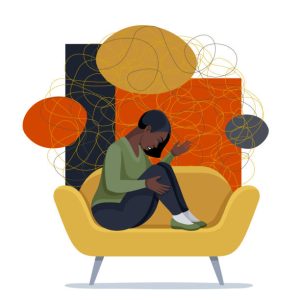Table of Contents
TogglePersonality disorders are a group of mental health conditions that cause people to have inconsistent and unpredictable behavior. People with personality disorders often blame their problems on other people or events, but there’s no way to predict how they’ll act based on their diagnosis alone. As a result, psychologists don’t consider them diseases; instead, they’re considered character flaws caused by genetics or environmental factors. But even though this definition might seem like it’s missing something important—namely the word “psychological”—it still gives us some insight into what makes someone different from the average person!
Antisocial personality disorder

Antisocial personality disorder is a personality disorder characterized by a long history of violating social norms and laws. Those with this condition are often manipulative and deceitful, as well as impulsive. People with this condition may have difficulty maintaining stable relationships and can be engaged in criminal activity.
Symptoms of antisocial personality disorder include:
- Repeated criminal behavior such as vandalism or theft (for example, shoplifting)
- Frequent lying to avoid responsibility for one’s actions (for example, blaming others for stealing things)
Schizotypal personality disorder

Schizotypal personality disorder is a mental illness that causes a person to have trouble relating to others, and to think and act in strange ways. This disorder is often confused with schizophrenia, but it is not the same thing.
People with schizotypal personality disorder struggle to form relationships due to their tendency to experience negative feelings like anger or anxiety when around others. They also avoid being in groups and prefer solitude. Individuals meeting these criteria should promptly seek treatment if they feel depressed, as untreated behavior can eventually lead to suicidal thoughts.
Schizoid personality disorder

Individuals with schizoid personality disorder lack interest in social relationships, desire for intimacy, and prefer solitary activities like reading or writing. In fact, they may never have a friend or partner and choose to avoid others altogether, exhibiting socially isolating behavior. It’s important to note that they don’t reject friendship but rather prefer not to spend time with others. Additionally, schizoids are indifferent to praise and criticism. They not only prefer solitude but also detach from the world, lacking emotions like anger or sadness and being indifferent to others’ opinions.
Borderline personality disorder

Borderline personality disorder (BPD) is a pervasive pattern of instability in interpersonal relationships, self-image and emotions that begins by early adulthood and is present in a variety of contexts. Disturbances in moods, identity or behavior are evident. A person with BPD experiences periods of intense anger, hostility and moodiness alternating with more serious depression. The symptoms can be stable over time or fluctuate over time depending on circumstances as well as individual differences among patients.
The most common features include:
- Unstable personal relationships due to frequent abandonment, infidelity or abandonment;
- Emotional instability;
- Impulsivity resulting from an inability to tolerate frustration;
- Recurrent suicidal behavior or self mutilation (cutting);
Histrionic personality disorder

Individuals with histrionic personality disorder exhibit dramatic and attention-seeking behavior, craving attention while feeling uncomfortable in relationships. They struggle to express themselves clearly due to excessive emotional reactions. Impulsive and seductive actions may be displayed, which can be inappropriate, manipulative, and vain. They boast about their achievements and make false assumptions about how others perceive them based on their appearance or words.
Narcissistic personality disorder

Narcissists are self-centered, vain and egotistical people. They have a grandiose sense of self-importance. They believe they are special and unique, which gives them the impression that they deserve special treatment. In addition to this inflated view of themselves, narcissists also tend to need constant admiration from others because their low self-esteem makes them feel worthless if left alone for too long without someone who appreciates them for who they are (or at least what they could be).
Because narcissists lack empathy for others’ feelings or needs (they only care about how it affects them), it’s no surprise that many psychopaths have narcissistic personality disorder as well!
Avoidant personality disorder

Avoidant personality disorder is characterized by extreme shyness and sensitivity, which can make it difficult for someone to form or maintain interpersonal relationships. People with this disorder have a fear of rejection and criticism that drives them to withdraw from social situations and avoid contact with others. They may also have a low self-esteem that causes them to feel worthless or inferior compared with other people.
People with avoidant personality disorder often feel guilty if they see someone else do something that they themselves would like to do; this feeling of guilt makes it difficult for the individual with the disorder to act out on his/her own desires without considering how others perceive those actions first (i.e., “What will other people think?”).
Dependent personality disorder

The person with dependent personality disorder has a hard time making decisions, and may feel helpless. They need someone else to make decisions for them. This can be an embarrassing problem to deal with in social situations, as the person who has this disorder is not able to do things on their own because they don’t want to take responsibility for anything.
Some individuals with this disorder feel nervous or anxious when alone, but they also avoid being alone. However, a few of them either enjoy solitude or lack any desire for non-family/non-friend human interaction.
Not all psychological issues can be generalized
Personality disorders are a broad range of psychological disorders that have different symptoms and causes. Not all people with a personality disorder are violent or dangerous, but they can still cause problems for others. In fact, some personality disorders may be more common among people who engage in criminal activity than other types of mental illness.
Personality disorders often begin during childhood and adolescence and continue into adulthood—but not always! Some people with this type of condition never develop any further symptoms as they age; others do so only after reaching their midlife crisis (mid-30s).
If you’re concerned about whether or not you might have one of these issues yourself, talk to your doctor about it first—and then keep reading if you’d like more information on how he/she might help manage yours










